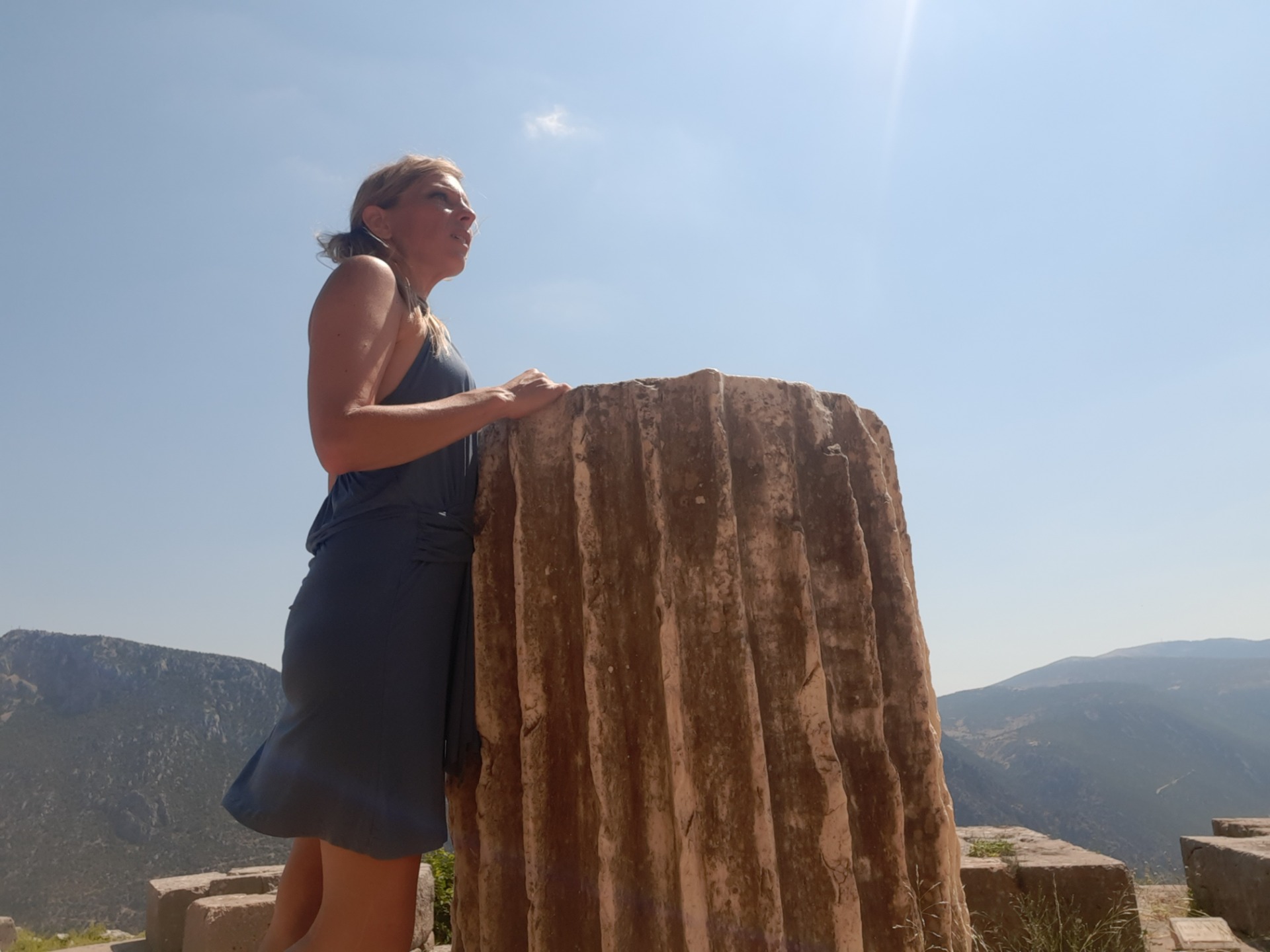
Elodie Pechard Kann

The deep instinct of traveling through the lands, the mind or the oceans has for 30 years guided my research towards megalithic and ancient sites : Delphi, Delos, the majority of Greek sites and Crete, but also the Great Zimbabwe, the thousands of stone circles in South Africa and Swaziland, the numerous sites in the Indian Ocean, the West Indies, South and North America, China, Indonesia and India... So many sources of inspiration to understand the way of life and the relationship with the environment of ancient civilizations.
An ancestral approach to inspire today's world?
This transmission of knowledge, identified and analysed with the scientific rigour of historical researchers, aims to "re-inspire" our world through reusable know-how that is more consistent with the environment.

RESEARCH & PUBLICATIONS
The objective of my work is to understand the beliefs and the relationship of ancient civilizations with nature, fauna, the elements or the cosmos in order to identify knowledge and practices that can be reused in today's world.
> APPROACH
From the perspective of Eco-History, the History of Sensitivities, the Archaeology of Gesture, Ethnoastronomy or iconographic decoding, various sources are analyzed and confronted with recent data from different disciplinary fields of history, archaeology and the environment.
> RESEARCH
The comparative analysis of this knowledge makes it possible to develop hypotheses, to restore contexts such as imagining the landscapes of antiquity and coherent scenes of life in the form of tales or historical fictions.
The focus of my research remains mainly on water and its daily uses, in sacred rites and sanctuaries. The objective is to shed light on the origin of certain legends, the daily life of vanished civilizations or to understand the relationship of the ancients to aquatic environments: rivers, lakes, peat bogs, volcanic springs, underground sources, waterfalls, sacred fountains, etc. These places of interaction between humans and nature are studied by knowledge of local myths, the hydronymy of places, architectural elements, furniture, the handling of objects, the use of organic products or the inventory of little-known divine figures and forgotten goddesses of the Iron Age and antiquity.
> PUBLICATIONS
The hypotheses developed by the cross-referencing of data are interpreted in HISTORICAL FICTIONS or FUTURISTIC NOVELS confronting the practices and know-how of civilizations that have evolved in a nature not impacted by the industrial world and its various pollutions. These interpretations of history refocus humans in a more rational use of resources, without the use of invasive substitutes for the body, fauna, flora and the various natural spaces. Rediscovering old knowledge makes it possible to readapt it to today's world to promote more harmonious interpersonal skills between humans and their living spaces.
